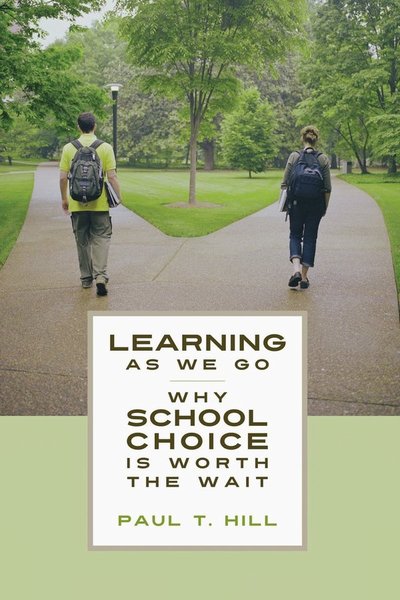April 22, 2010
UW education professor writes new book on helping charter schools succeed
Schools of choice, also known as charter schools, bring out fierce debate among parents, teachers, legislators and administrators — a whole slew of people.
Studies of these K12 schools have shown great successes but also many mixed results.
According to Paul Hill’s new book, the debates often fail to address what it takes to make charter schools succeed. It’s not enough, he says, to plant charter schools; they need nurturing from a complex group of supports.
Hill, John and Marguerite Corbally Professor of Education, directs the Center on Reinventing Public Education at UW Bothell, and he has written Learning as We Go: Why School Choice is Worth the Wait. The book was published in February by the Hoover Institution Press.
The son of a chemist, Hill is interested in causation. “I’d been uncomfortable with the research on schools of choice because it didn’t pay enough attention to the connections that have to be made for them to work,” he says.
Hill makes his points succinctly in this 130-page volume. He begins with the reasons he believes charter schools haven’t achieved broader appeal. First, political opposition. Second, rules and regulations that advantage incumbent teachers, administrators and interest groups. Third, an educational system built on entrenched rules. Fourth, time lags intrinsic to a system of choice.
The solutions, Hills says, include philanthropic investment and changes in public policy. Philanthropists could invest in new schools, local support, new ways of teaching and new career structures for teachers. Policymakers could eliminate financial advantages school districts have over charters and other schools of choice. They could do it, Hill says, by tying public funds to students.
Public officials could change policies and legal definitions so school districts could manage all of their schools according to performance. It would allow poor performers to die and new options to be born.
Supporters of charter schools and other schools of choice could accelerate improvement, Hill says, by expanding their agendas to include reform of state school finance.
Hill admits, however, in admitting he doesn’t know how long it will take to make “the virtuous cycle” really take hold. “But the results,” he says, “will come much earlier if the investments and policy changes . . . are made.”



